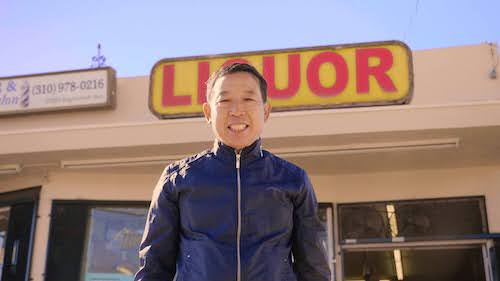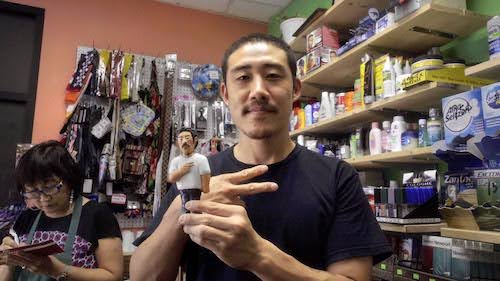Communiqué
Two Korean American children reconcile their own dreams with those of their immigrant parents in “Liquor Store Dreams” on POV, July 10 at 10 pm
< < Back to two-korean-american-children-reconcile-their-own-dreams-with-those-of-their-immigrant-parents-in-liquor-store-dreams-on-pov-july-10-at-10-pm‘POV’ Confronts Immigrant Dreams and Generational Divides As They Collide Against LA’s Complex Racial Landscape in the Moving
“Liquor Store Dreams”
Monday, July 10 at 10 pm
POV, America’s longest running non-fiction series, takes an unvarnished look at a family’s intergenerational relationships in director So Yun Um’s moving debut feature film Liquor Store Dreams. Co-Produced by Um and Eddie Kim, the autobiographical documentary follows two Korean American children of liquor store owners in Los Angeles who must reconcile their own dreams with those of their immigrant parents. Along the way, they confront the complex legacies of LA’s racial landscape, including the 1991 murder of Latasha Harlins and the 1992 uprisings sparked by the police beating of Rodney King, while engaged in current struggles for social and economic justice.

Liquor Store Dreams, a co-presentation with The Center for Asian American Media (CAAM), makes its national broadcast premiere on POV Monday, July 10, 2023 at 10pm and will be available to stream without PBS Passport membership until October 8, 2023 at pbs.org, and thePBS App. In addition to standard closed captioning for the film, POV, in partnership with audio description service DiCapta, provides real time audio interpretations for audiences with sensory disabilities.
Liquor Store Dreams introduces viewers to So and her childhood friend Danny Park, both “liquor store babies,” first-generation American children born to Korean immigrant parents who made the best of limited opportunities by running liquor stores in Black and Brown communities in Los Angeles. While having great respect for their parent’s sacrifices, they are determined to remain true to their aspirations and contribute to their vibrant, evolving neighborhood. So explores her dreams of a filmmaking career, which is a mystery to her bemused but supportive father Hae who wants her to get married and have children. After the death of his father, Danny returns from a dream job at Nike to help his mother Mae run her store in LA’s Skid Row, reimagining it as a convenience store providing healthy food options to the community. Danny, who once had very different dreams for himself, is committed to building bridges between Korean-Black relationships to heal the wounds of the past.

Credit: So Yun Um
Director So Yun Um juxtaposes the two families’ struggles with the history of how so many Koreans came to own liquor stores in LA, and how that contributed to racial tensions. She includes the 1991 murder of Latasha Harlins in a Korean convenience store, the 1992 uprisings sparked by the police brutality against Rodney King and ensuing looting of Korean businesses. Harlins’ killer, Soon Ja Du, was convicted of manslaughter but sentenced to no prison time. The LAPD officers captured on video severely beating King were acquitted.
The raw, intensely personal documentary follows the four protagonists as they examine the challenges of race, culture and identity to put a modern take on the immigrant experience in America.
“I made Liquor Store Dreams because I saw a void in the Korean perspective when it came to Black and Korean relations, tracing back to the ’92 LA Uprising to the Black Lives Matter movement,” said So Yun Um, director of Liquor Store Dreams. “I wanted to create a film that was altogether personal, educational, and a conversation-starter. It means the world to the entire film team that the film will air on POV. POV has always prioritized uplifting marginalized voices and powerful personal stories and we are honored that we are part of this upcoming season’s line-up.”
“So’s first feature gives a fresh perspective on generational and racial divides,” said Chris White, Executive Director, American Documentary. “Liquor Store Dreams ambitiously attempts to reckon with LA’s troubling Black and Korean American past inviting members of those communities to find common ground. After watching the documentary, we hope our viewers have a better understanding of the nuances impacting the city’s community relations.”

